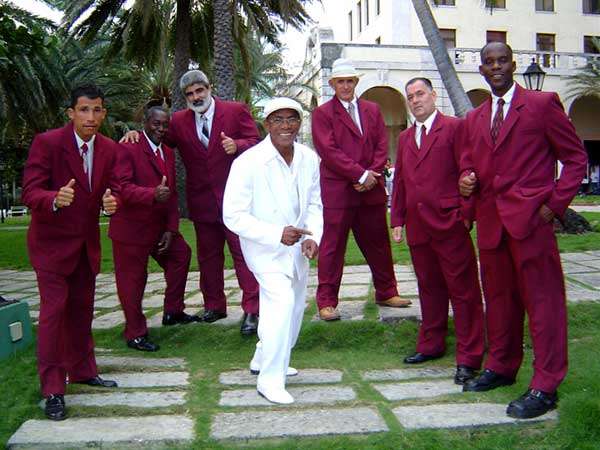The key and heart are fundamental dressings to son. This The Ignacio Piñeiro National Septet makes clear in its CD La Habana tiene su son (Bis Music 2012), essential album for those wishing to enter traditional Cuban music, cultivated in contemporary times.
Tres, trumpet and percussion accompany a lilting and unmistakable rhythm that makes National one of the most important septets on the island. Everyday stories that take place in the city are told with Cuban flavor and ease, while we take a musical tour through guajiras, rumba and bolero that taste like son; contagious songs like Gloria a los rumberos, Alma felina and Fijate que no es igual.
In this new album, released this Friday in Havana, stands out the involvement Puerto Rican singer Andy Montañez in that beautiful theme by Ignacio Piñeiro, named Four pigeons while they invited Ernesto Gatell and folk ensemble Timbalaye to perform Pégate a la puntita, a rumba by Francisco Oropesa.
And for those who long to see much more of this group of musicians, they will give away a DVD outlining the concert offered in 2007, Fetes de Geneve in Geneva, Switzerland.
Francisco Oropesa, leader of the group since 2003, says that Habana tiene su son is a phonogram attractive to younger ears. He also foresees it an indisputable success in demanding publics and the secret, he highlights, is this melodic tour proposed in the 16 singles the CD contains.
It’s an album, he says, "made with love and where we made sure there were songs to listen to and others for the youth to dance. With the situation of foreign genres who wanted to impose, we say that our son doesn’t have any rival, because it is a son that is made with rumba and anthology music ingredients, which are our roots. "
As for the title of the CD, Oropesa offers its premise that, indeed, Havana tiene su son. He says that this piece, written by him, was made "without offending anyone. This is the sound of the National Septet and is done in the capital, which Ignacio Piñeiro created. It has key, it has body, has a narrative, it tells a fact, what happens to the Cubans, "he says.
This is the fourth generation that integrates the National Septet, which came to live on December 13, 1927, on the Pocitos Street in the renowned neighborhood of Pueblo Nuevo, where Piñeiro grew up.
Desafiando el destino (Bis Music), Noche de conga (Egrem) and Sin rumba no hay son (Harmonia Mundi), are some of the latest National albums. In these, as in all its records, it maintains a unique hallmark, which makes them popular and respected among the followers of Cuban traditional music.








